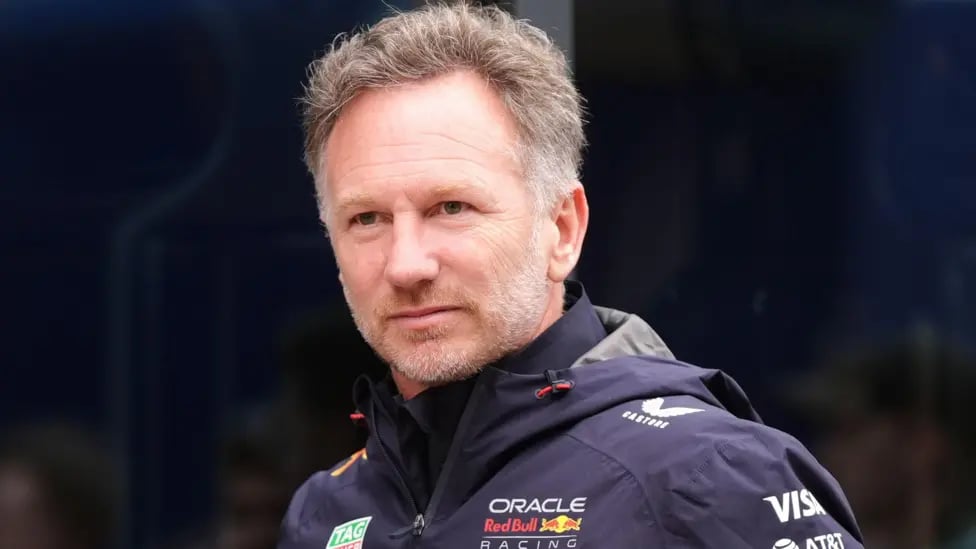Welcome to our blog ! Here you will find news and updates about sports, politics, artists, and everything that is trending right now. Enjoy the content and stay up to date with the latest trends! Stay Informed with BoomViral News.
"Is Red Bull's decision to dismiss Horner a gamble to retain Verstappen?"
Suraay
7/10/20253 min read


A Surprising Yet Inevitable Exit: Christian Horner’s Dismissal Shakes Red Bull
The shocking dismissal of Red Bull team principal Christian Horner on Wednesday was both a genuine surprise and, in hindsight, an almost inevitable outcome given the team’s recent turmoil. That these two seemingly contradictory ideas can coexist speaks to the bizarre narrative that has surrounded Red Bull over the past two years.
This marks an unprecedented moment in the team’s history. Horner has been the only leader Red Bull Racing has ever known—its 124 race wins, six constructors’ titles, and eight drivers’ championships were all achieved under his guidance since the team’s debut in 2005. He built a Formula 1 powerhouse, and his legacy as one of the sport’s most successful team principals is secure.
Yet now, he’s gone.
Even Red Bull employees were caught off guard, learning of Horner’s departure only when he bid farewell to staff at the Milton Keynes factory on Wednesday morning, shortly before the news broke. Just days earlier, at the British Grand Prix, he had appeared relaxed and confident about his position. But for those paying close attention, Horner’s exit had long felt like a ticking time bomb—one that still managed to explode unexpectedly, leaving the F1 world stunned.
"As big news stories go," tweeted F1 commentator David Croft, "it doesn’t get much bigger in F1!"
Why Now?
The simplest explanation is that Red Bull is prioritizing Max Verstappen’s future over Horner’s leadership. With persistent rumors linking Verstappen to Mercedes, the team may be making a bold statement: it will do whatever it takes to keep its star driver. While there’s no guarantee this will work—especially with Verstappen’s contract allowing an exit if he falls below third in the standings—it underscores the high-stakes gamble Red Bull is taking.
Horner’s departure follows a series of escalating issues. In 2024, he survived a personal scandal after an internal investigation cleared him of misconduct allegations, but the controversy deepened divisions within the team—particularly between Horner and Jos Verstappen, Max’s father. Jos had warned last year that Red Bull risked being "torn apart" under Horner’s leadership, and tensions only grew after the death of Red Bull founder Dietrich Mateschitz in 2022.
A Team Unraveling
Red Bull’s on-track struggles in 2025 compounded the problem. The once-dominant team has faltered, with Verstappen single-handedly carrying the weight—scoring 203 of the team’s 210 points this season. Meanwhile, Sergio Pérez’s struggles led to his exit, and replacements Liam Lawson and Yuki Tsunoda have failed to impress.
Off-track, the team has suffered a brain drain. Legendary designer Adrian Newey left for Aston Martin, sporting director Jonathan Wheatley joined Audi, and strategy chief Will Courtenay is set to move to McLaren. Attempts to fill these gaps have been inconsistent, exposing Red Bull’s vulnerability in key areas.
The Verstappen Factor
Verstappen has remained publicly neutral on Horner’s position, but his contract’s performance clause—allowing an exit if he’s outside the top three by the Hungarian Grand Prix—has loomed large. Though a move to Mercedes in 2026 seems risky given upcoming regulation changes, the mere possibility has given Verstappen’s camp leverage.
Horner’s recent comments hinting at life without Verstappen may have been a final misstep. By suggesting Red Bull could thrive even without its star driver—echoing Mateschitz’s old adage, "We don’t need the best driver if we don’t have the best car"—he may have inadvertently sealed his own fate.
What’s Next?
Horner’s exit likely signals Red Bull’s commitment to appeasing Verstappen, but whether it’s enough to secure his long-term future remains uncertain. The team faces a challenging transition in 2026 with its new Ford-powered engine, and without Horner—a figure some saw as a disruptive force—Red Bull hopes to stabilize.
As for Horner, his next move is unclear. With close ties to Ferrari chairman John Elkann and Alpine’s Flavio Briatore, a return to F1 in some capacity seems plausible. But for now, the man who built Red Bull’s empire finds himself on the outside, marking the end of an era in Formula 1.